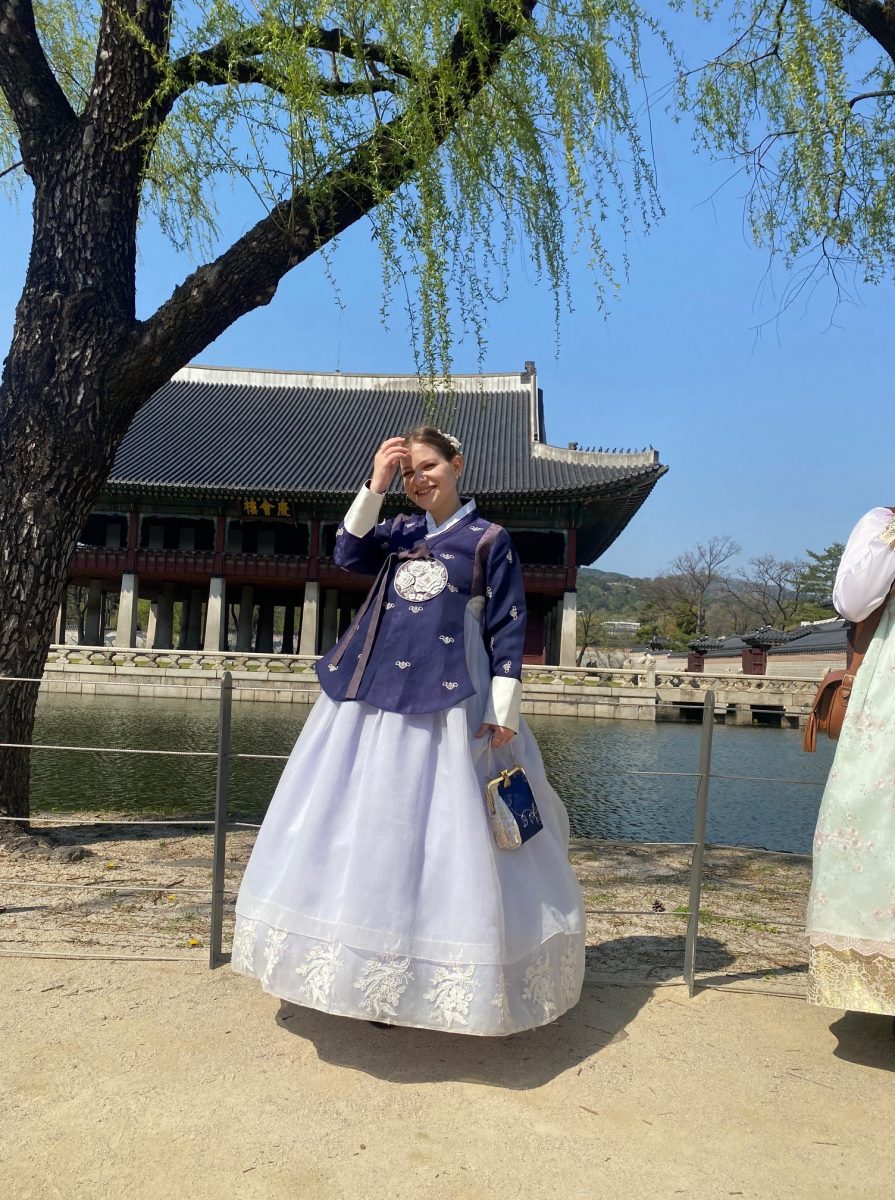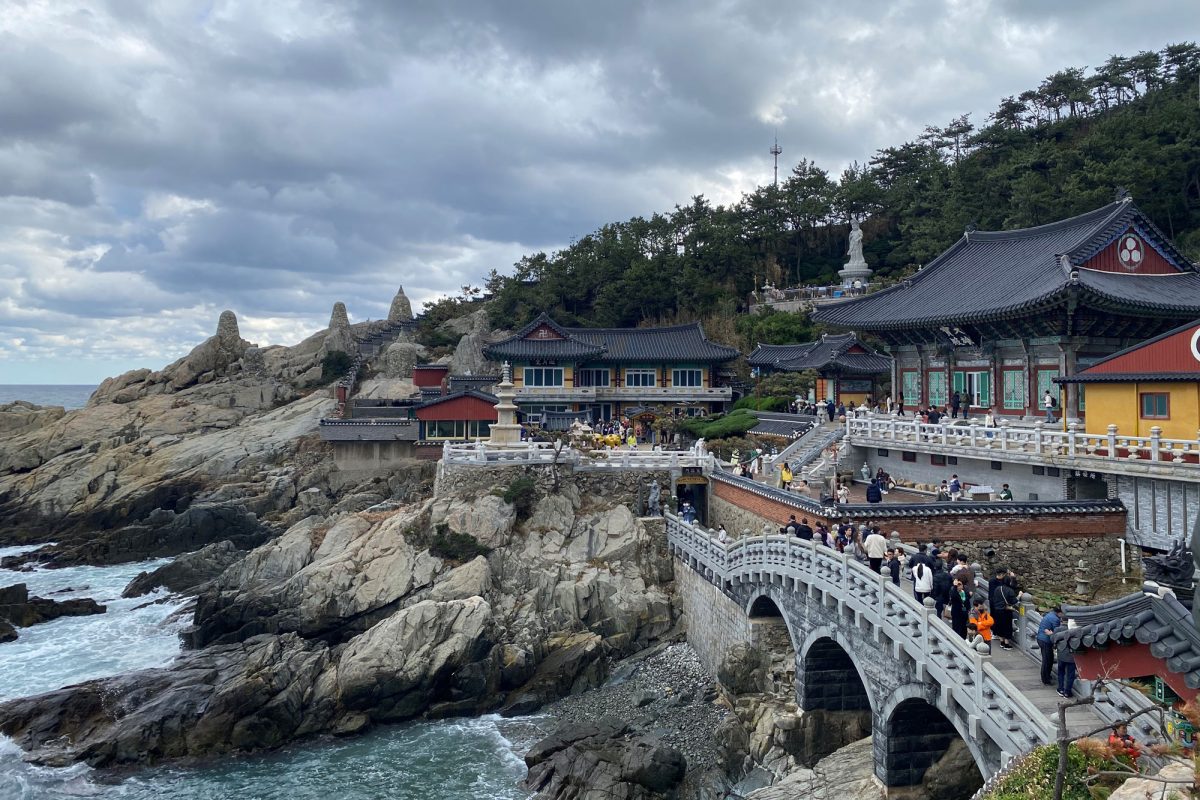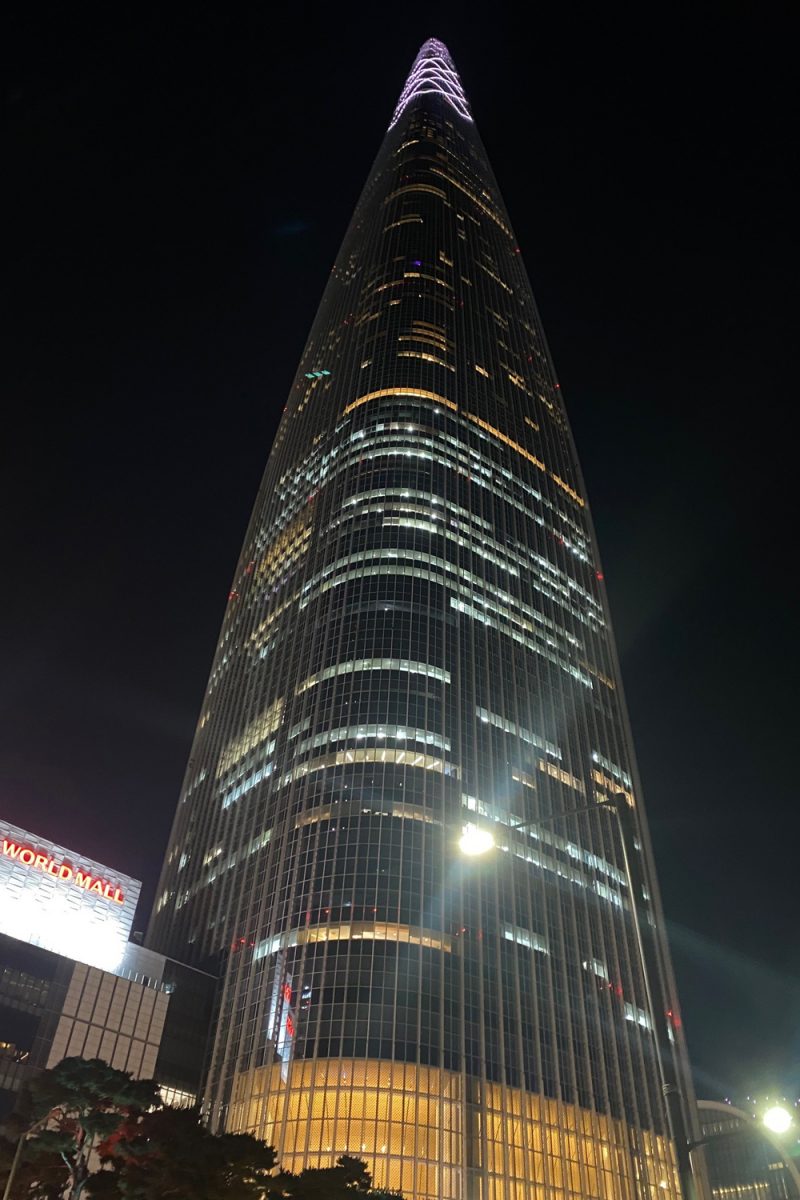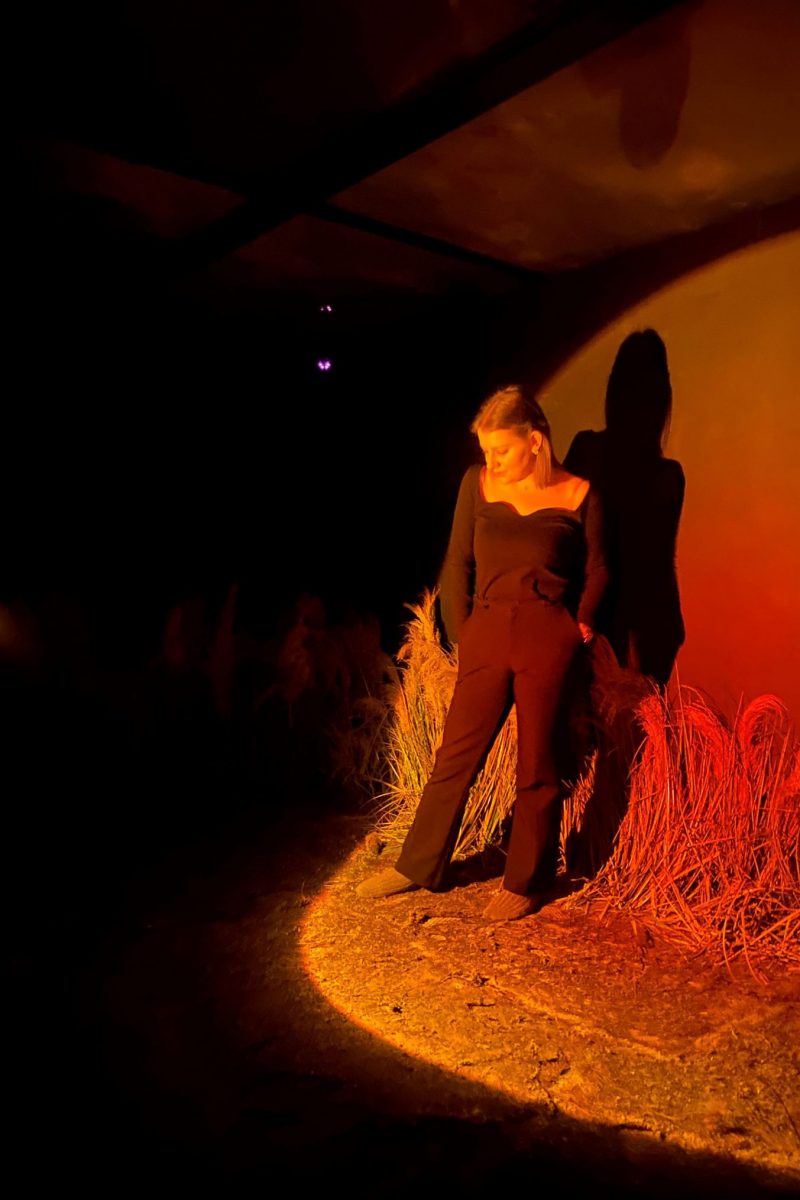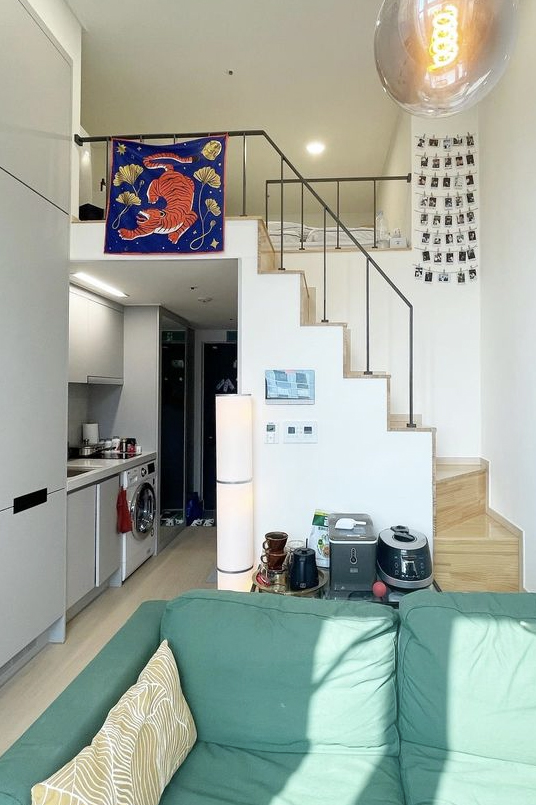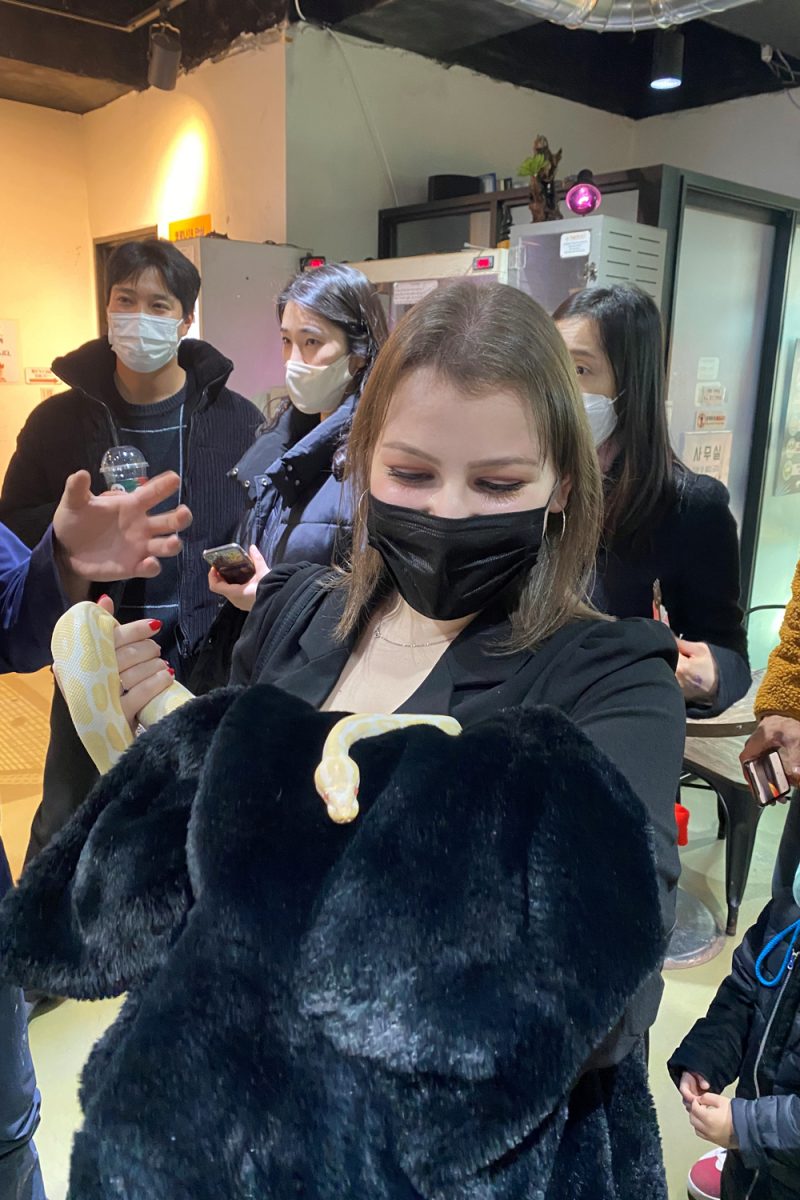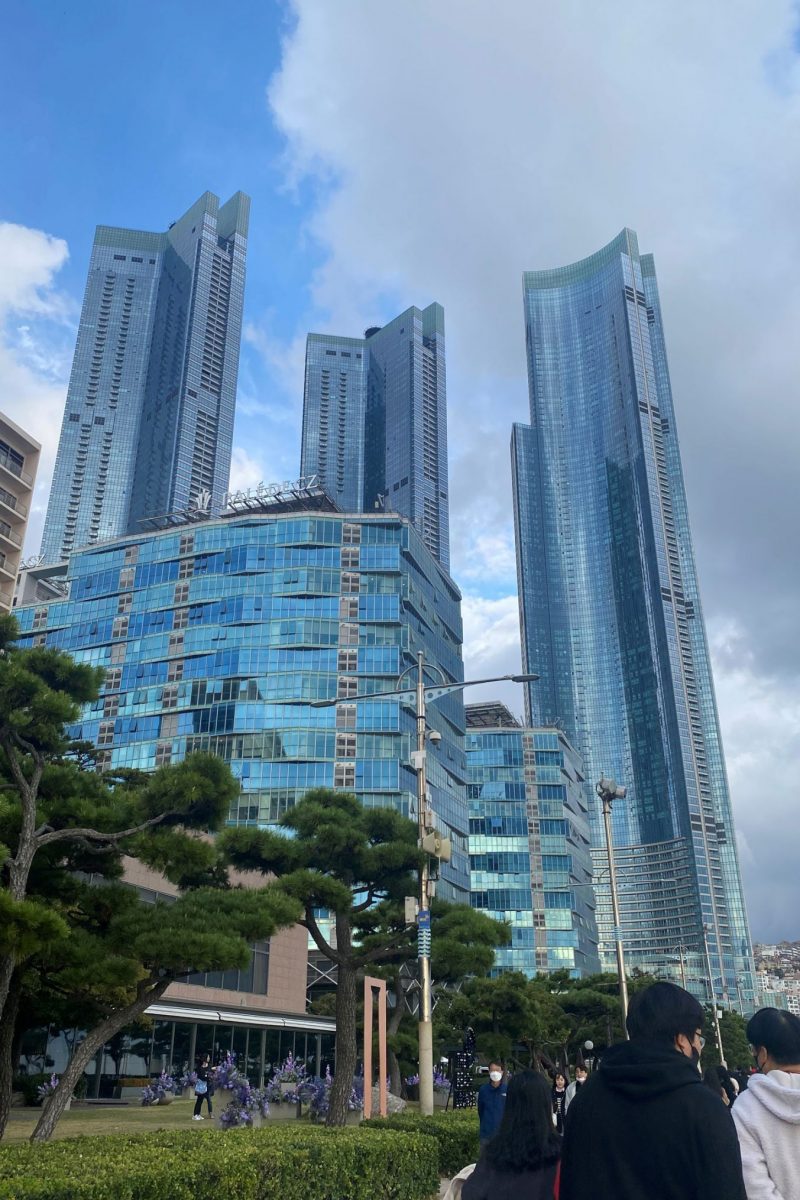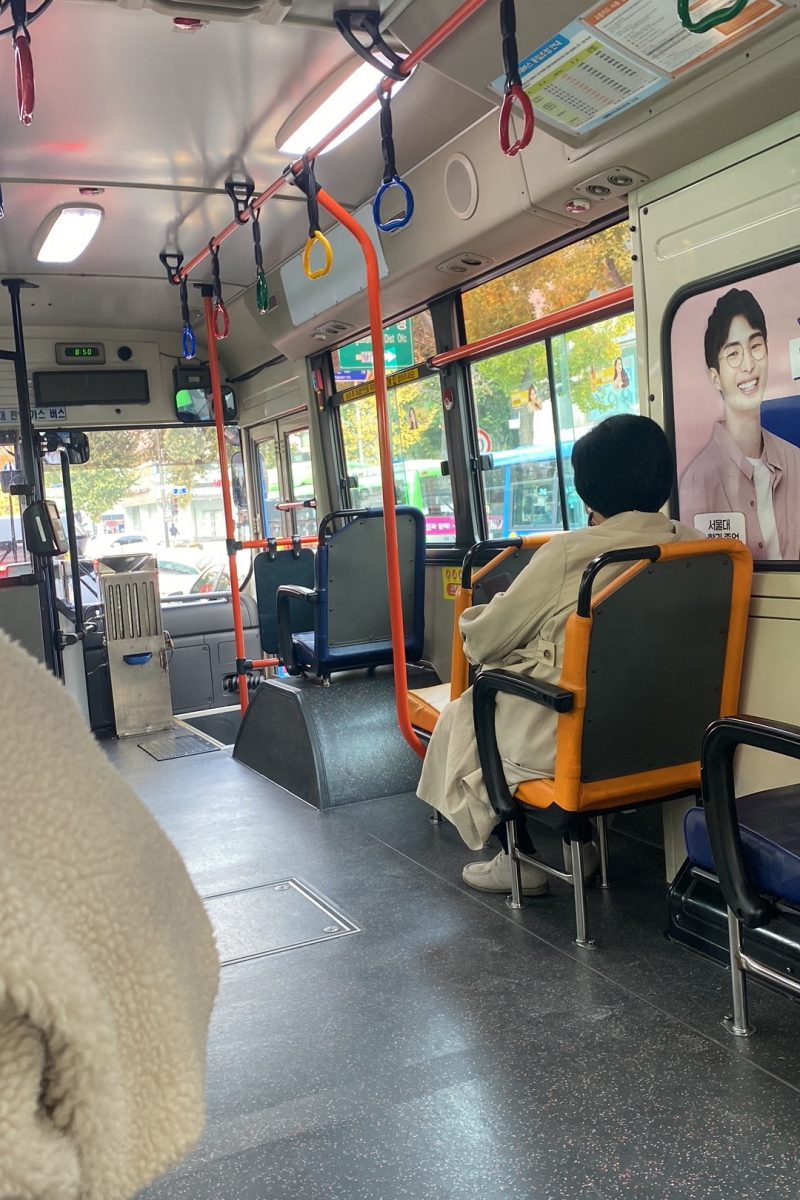Mail from … Seoul Architecture student Eda Yesilyurt reports on her internship in South Korea
General Information
This is where I live at the moment:
In Seoul, South Korea.
This is what I do in Seoul:
I have already spent my semester abroad in Seoul in the winter semester 2021/2022. Afterwards, I decided to also complete my internship for admission to the master’s programmes in Seoul. Despite a lot of competition, I was fortunately able to get an internship in an architectural office in Gangnam, a very lively and well-known district of Seoul. I organized everything on my own.
My stay lasts a total of:
My stay will last a total of six months. However, it is also an option for me to move here after my master’s degree.
That’s why I decided to live abroad in Seoul:
South Korea was not my first choice for a semester abroad. I definitely wanted to go to an Asian country and had chosen China as my destination. However, the entry in 2021 was not possible because of the corona virus. So I chose South Korea, which I definitely don’t regret! After all, I am now here for the second time. The architecture in South Korea is very diverse. Most apartments are much smaller than in Germany due to the lack of space. The ideas that have been implemented to save space are very interesting. For example, in some apartments the shower is mounted directly above the sink to save space. But for me as an architecture student, it is also very interesting to explore the many centuries-old palaces.
Local life
This is how I live in Seoul:
I chose an apartment that is comparatively a bit more expensive and larger than a typical student apartment. The apartment is a so-called “officetel”, which means an apartment with two floors. On the second floor there is only the bed.
What makes working in South Korea different from working in Germany?
The working environment is very different compared to Germany. People here hurry a lot with everything, which leads to them being more stressed. Overtime is quite normal here – it’s even taken for granted. On the other hand, the team spirit among colleagues is much stronger. After work, people often go out for a meal or a drink together. And: Hierarchy is very important here. Everyone has their place and must behave accordingly.
Particularly typical for Seoul is:
I chose an apartment that is comparatively a bit more expensive and larger than a typical student apartment. The apartment is a so-called “officetel”, which means an apartment with two floors. On the second floor there is only the bed.
That’s what I learned here in the first three days:
From the first three days in Seoul, I mainly remember the stressful traffic. Especially at working hours, you realize that you are in a city of millions. Seoul is so big that it’s quite normal to drive an hour from A to B here.
The biggest challenge during my stay has been …
The biggest challenge for me is the language. If you don’t speak Korean, you will quickly encounter some difficulties. Even though some people, mainly young persons, speak English, it is usually not possible to communicate with them if you do not speak Korean well, due to their shy and reserved nature. English is actually hardly spoken in working life, but I luckily had work colleagues from other countries, so I was able to speak mostly English. In my studies, there were some English modules that I could take. However, most of the modules are only offered in Korean.
What I will take home with me from here:
Many new impressions, of course! For example, the many surveillance cameras may be irritating at the beginning, but give a feeling of security after a while. Also, South Korea is very fast, be it in bureaucracy or in delivering food or orders from online stores. A food order usually only takes between 20 and 30 minutes, and orders from online shopping almost always arrive the very next day. I also like the fact that people here find time to meet up with friends and work colleagues, enjoy a good dinner and have a few drinks, despite the long and exhausting working hours. It’s a nice distraction from a monotonous life. Of course, the most important thing for me is the experience I have gained in the architecture office. Everything I have learned here will certainly help me a lot in my professional future and expand my architectural skills and thinking.
Good to know
This is a local dish you definitely have to try:
Definitely Korean Beef & Chicken BBQ and Beef Soup. I could list a lot of things, because almost everything tastes good here. I will definitely miss the food the most when I’m back in Germany.
Which blunder should you avoid in Seoul?
Despite all globalization, Koreans are very traditional and sometimes still very conservative. Respect is very important here. Therefore, you should be careful not to disturb the peace of others, for example in buses and trains by talking loudly, listening to music, etc.. In addition, you should learn Korean and pay attention to the forms of politeness and also certain rules of dress, such as a low décolleté, which is not welcome in public. I think that as a guest in another country, despite all individuality and self-development, one should take these customs into account.
This is a tip I give to other staff members who want to go abroad:
The most important thing is to take care of everything (documents, etc.) in time. It is never too early to start gathering documents.
This is something I would like to add:
Whether for a semester abroad at university or an internship: It is definitely worth going abroad and from my point of view you should have done it at least once in your life.

